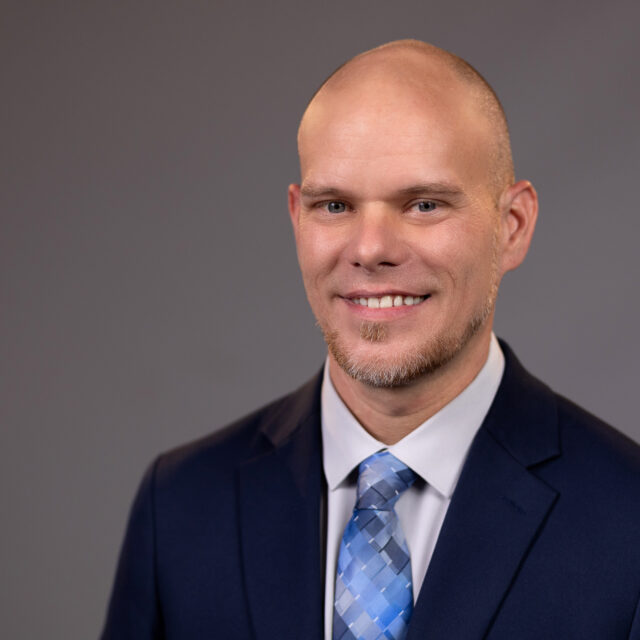Ending Gun Violence Is an Integral Part of Ending Domestic Violence
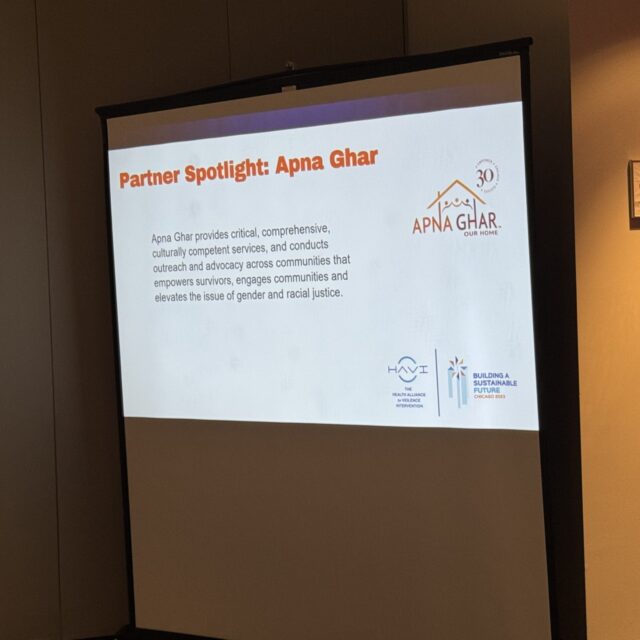
By: Neha Gill, Executive Director of Apna Ghar 10.30.2023
I’m from India and have lived in Mauritius, Australia, Canada, and Kenya. Now, I call Chicago home. My road to the Windy City started in East Africa, where I studied international development and interned with a community based organization focused on women’s leadership. I was transformed by that experience, which gave me insights into the power of individuals and led me to an incredible organization called Apna Ghar back in the U.S. The lesson that I have carried since is that empowered individuals can and will transform families, communities, institutions, and societies. I’m privileged to witness this take place every day at Apna Ghar.
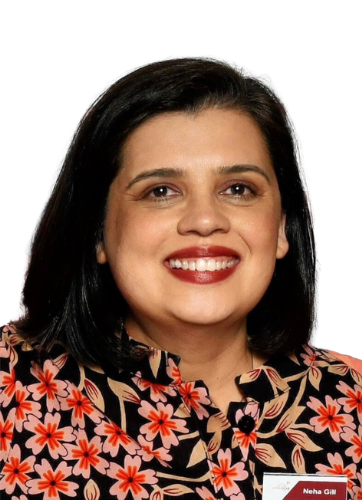
Apna Ghar means “Our Home.” We were founded by five pioneering women in 1990 after crisis-line calls revealed that the growing immigrant and refugee populations in the Chicago area needed culturally competent and trauma-informed services, outreach, and advocacy. We needed to help end gender-based violence.
I have been at Apna Ghar for 20 years. I’ve risen through the ranks from an advocate, to the Director of Programs, to the Executive Director, a role I’ve now held for ten years. And in those two decades, I’ve been privileged to witness how empowered individuals can and will transform families, communities, institutions, and societies.
Our organization currently provides critical, comprehensive, and culturally competent services to survivors from more than 50 countries, including the United States. Our programs are based on an evidence-based model—a socio-ecological framework that we co-created with the Center for Urban Research and Learning at Loyola University Chicago. This framework accounts for the micro- and macro-level factors that impact survivors of domestic violence.
We see our purpose as empowering survivors, engaging communities, and elevating gender and racial justice. The programs we leverage to do this include:
- Emergency and transitional housing;
- Legal and medical advocacy;
- Economic empowerment;
- Community outreach;
- Education and training, and
- Public advocacy.
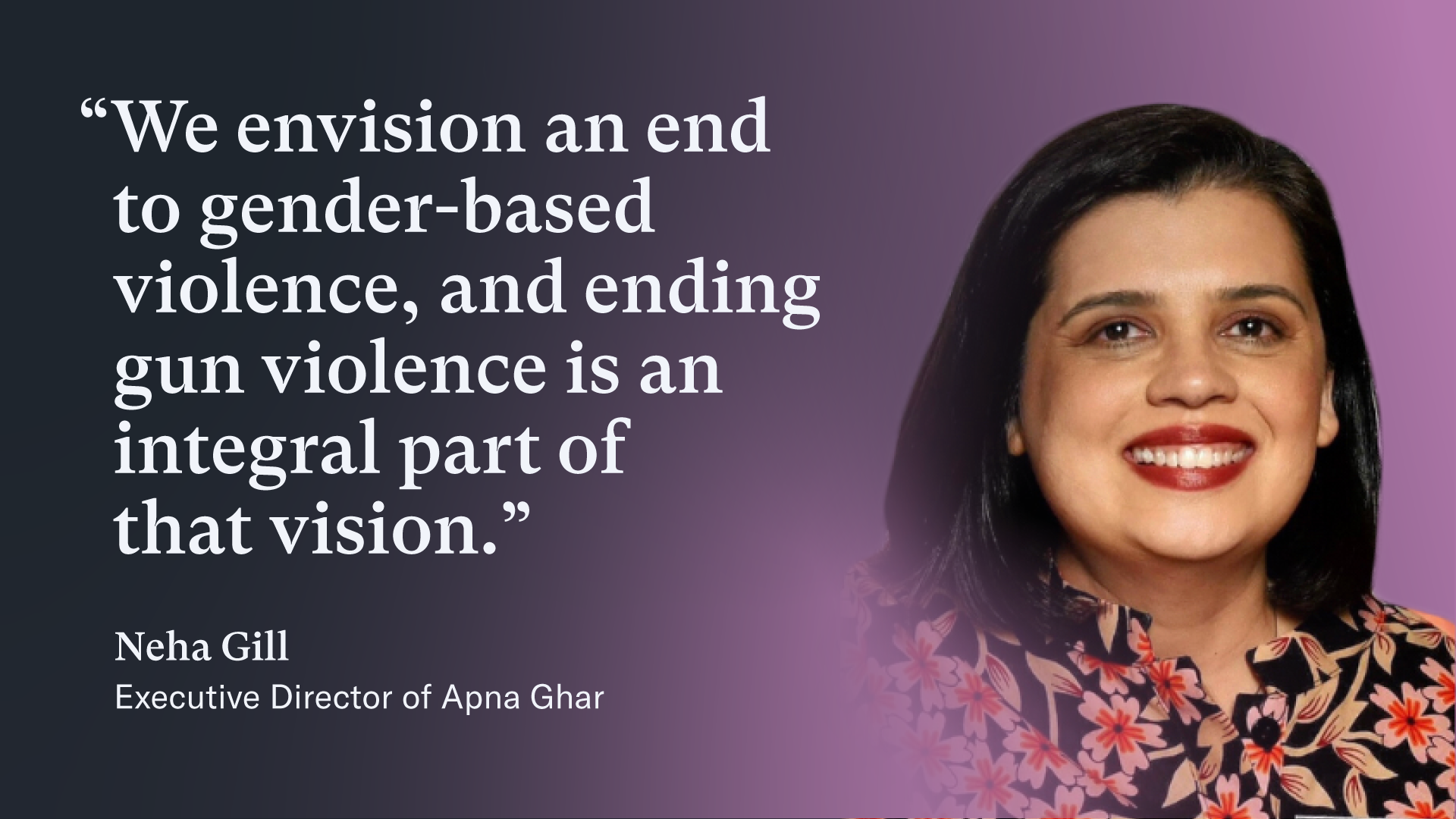
My day-to-day work involves ensuring that our organizational structure fully supports our work at various levels. We work with individual survivors of gender-based violence and with the community around us, and we build on these efforts through our systems and policy level advocacy. As Executive Director, I coach and mentor staff, and work to ensure that our community, staff, and board are aligned in how we implement our strategic goal. I also serve on boards and commissions to ensure that survivor and community needs are well represented in our region.
Apna Ghar currently provides critical, comprehensive, and culturally competent services to survivors from more than 50 countries, including the United States, with critical, comprehensive, and culturally competent services. We conduct outreach and advocacy across marginalized communities to end gender-based violence. Our programs are based on an evidence-based model—a socio-ecological framework that we co-created with the Center for Urban Research and Learning at Loyola University Chicago. This framework accounts for the micro- and macro-level factors that impact survivors of domestic violence.
We’ve been able to take that work even further thanks to the Everytown Support Fund Domestic Violence Grant we received in 2020.
That support from Everytown was a catalyst through which we deepened our understanding as an organization about the intersection of gun violence, domestic violence, and other forms of gender-based violence. We connected with our local Moms Demand Action groups and put together a report and presented our findings.
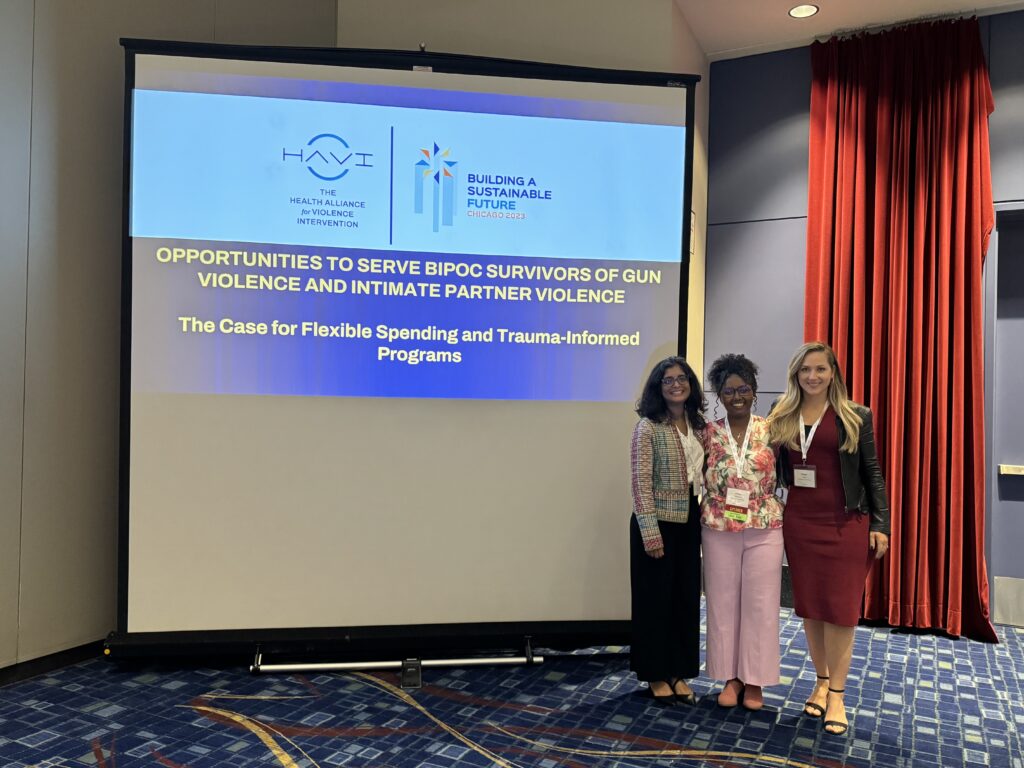
We have continued our collaboration with Everytown and are updating our safety planning tools and processes while conducting more tailored outreach and advocacy. Additionally, we’re working with our partners on legislative and policy initiatives like Karina’s Bill.
With our shared commitment to our mission, we’ve been able to make some special moments possible.
I was particularly proud to have survivors we had served attend the formal opening of our purpose-built safe home, which included meeting with former Chicago Mayor Rahm Emanuel. During the tour, the survivors were able to share with the mayor about what Apna Ghar’s services meant to them. The Mayor then spoke at the press conference about how that impacted him.
Importantly, the survivors were also able to advise us on how to prioritize services in the purpose-built safe home.
“I’m really proud of how beautiful the building is,” one of the survivors said, “but it is the warm and caring support that we receive day in and day out from the staff at Apna Ghar that lifts us up.”
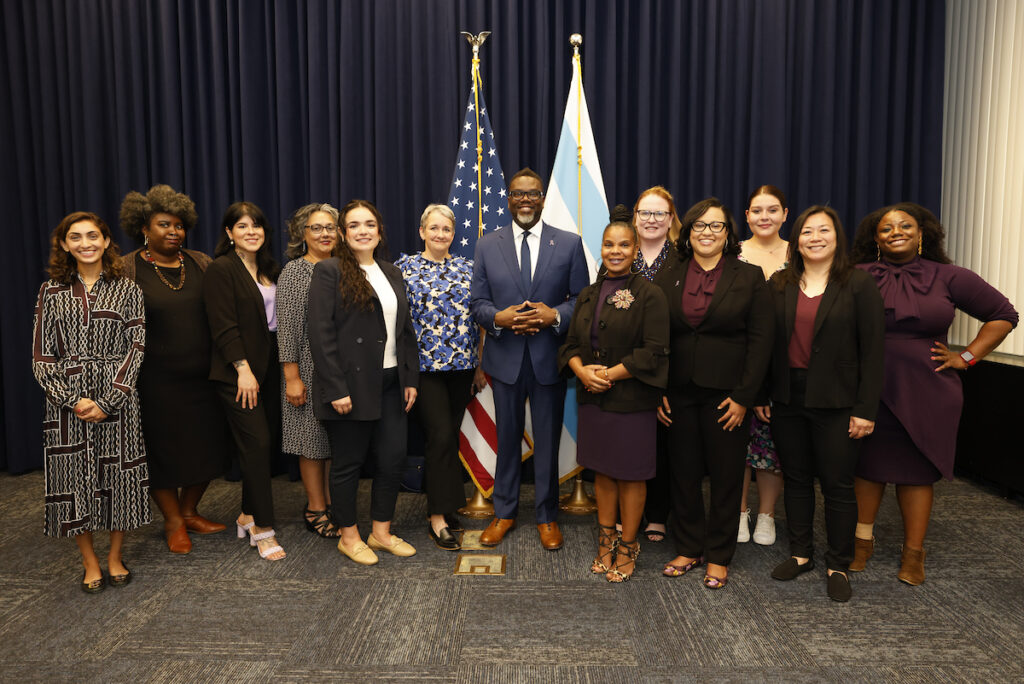
Since then, Apna Ghar has also been able to establish our Leadership Council of Survivors to advise us on our programs and services.
Within our organization’s domestic violence prevention and awareness work, gun violence prevention is critically important. So many survivors have died because of the gun violence crisis. The devastation in their families, communities, and among our staff is truly heart-wrenching.
We envision an end to gender-based violence, and ending gun violence is an integral part of that vision.
Learn more about Apna Ghar.
National Domestic Violence Hotline
If you or someone you know is in crisis, please call the National Domestic Violence Hotline at 800-799-SAFE (7233), available 24/7, for confidential assistance from a trained advocate, or text START to 88788 from anywhere in the U.S.
You can also find more resources on legal assistance in English and Spanish at WomensLaw.org.
Author
-
Neha Gill, Executive Director of Apna Ghar
Neha Gill is the Executive Director of Apna Ghar, an organization that provides critical, comprehensive, and culturally competent domestic violence-prevention services to survivors from more than 50 countries, including the United States.





